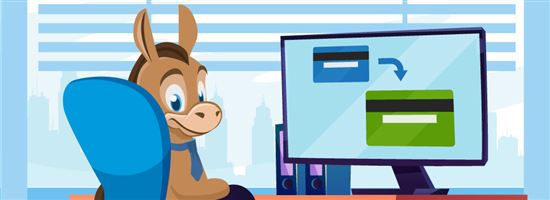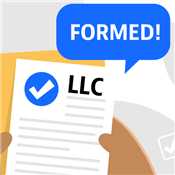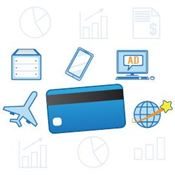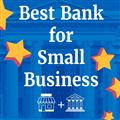How to Get a Business Credit Card
Ad Disclosure: This article contains references to products from our partners. We receive compensation if you apply or shop through links in our content. This compensation may impact how and where products appear on this site. You help support CreditDonkey by using our links.
Applying for a business credit card is easier than it sounds. Here is how to apply for one, whether you have a corporation or a freelance side hustle.
 |
A business credit card is a great way to get extra rewards and perks.
But not all cards are created equal.
Read on for everything to know about how to apply for a business credit card.
- Have a small business with the intent to make a profit.
- Know your credit score so you know which cards you qualify for.
- Compare business credit card offers to find the best one for you.
- Fill out application with your business name and EIN (or your name and SSN).
- Wait for approval. Or call for reconsideration if rejected.
Consider this: Ink Business Cash lets you earn $350 when you spend $3,000 on purchases in the first three months and an additional $400 when you spend $6,000 on purchases in the first six months after account opening. Earn 5% cash back on the first $25,000 spent in combined purchases at office supply stores and on internet, cable and phone services each account anniversary year. Earn 2% cash back on the first $25,000 spent in combined purchases at gas stations and restaurants each account anniversary year. Earn 1% cash back on all other card purchases. There is no annual fee. (See Rates & Fees)
Plus, there is a 0% introductory APR on purchases for 12 months. After the intro period, a variable APR applies, currently 17.49% - 25.49%.
Who Can Apply?
Business cards aren't just for corporations. You can apply for a business card even if you're running a one-man show and have no office.
You may be surprised by what could be considered a business. Here are just some examples:
- If you're a freelance web designer
- If you have an Etsy shop
- If you sell books on Ebay
- If you drive Uber in your spare time
- If you tutor students
- If you sell cookies at the farmer's market
Basically, if you do anything for profit, it can be considered a small business.
In fact, you don't even have to be already making income to apply for a business credit card. You just need to have a reasonable intention to make money and have business expenses (such as buying materials for your Etsy shop).
Benefits of having a business credit card:
- Keep your business expenses separated. This will make it so much easier come tax time.
- Earn rewards in business categories. Besides the tempting bonuses, business credit cards generally give bonus cash back or points in popular business categories (such as office supply stores, advertising online, telecommunication services, etc.)
Ink Business Cash® Credit Card
Earn 5% cash back on the first $25,000 spent in combined purchases at office supply stores and on internet, cable and phone services each account anniversary year.
Earn 2% cash back on the first $25,000 spent in combined purchases at gas stations and restaurants each account anniversary year.
Earn 1% cash back on all other purchases. - More purchasing power. Having a separate business credit card will mean that you have more credit for business expenses. Also, business credit cards tend to give higher credit lines than personal cards.
What You Need to Apply
Here comes the fun part: Applying for a business credit card when you're just starting out can make you feel more official. It's a little different than applying for a personal credit card.
Here's a rundown of how to fill out the application:
- The business' legal name
This is the name you use to do business. It's what will show up on your card if you're approved.If you have a corporation or an LLC, enter the business name that you registered with your state government.
If you're a freelancer or sole proprietor, just use your legal name on this line.
Tip: Small business can also file a "Doing Business As" or DBA. This allows you to operate under another business name (instead of your own name). If you have done this, apply with your DBA name. - Your tax identification number
You'll need a tax identification number to process your application.Incorporated businesses and partnerships enter their federal Employer Identification Number. This is a nine-digit number issued by the IRS for tax reporting purposes.
If you're a freelancer, you'd enter your Social Security number on this line (unless you have an IRS-issued Employer Identification Number).
- The business type or business structure
This is the kind of business you're operating. If you're an LLC, you'd choose partnership or corporation, based on how it's set up. If you are a freelancer, you would usually put down sole proprietorship.Beneficial owners: Effective May 11, 2018, new regulations require that important personal information is also provided for beneficial owners. This is anyone who directly or indirectly owns 25 percent or more of the business. This includes names, birth dates, social security numbers, home addresses and percent of ownership. Their credit information is not pulled, but records are kept for informational purposes.[1] - The industry type or nature of the business
Credit card companies also want to know what kind of business you're running. You'll have a list of industries to choose from. Just select the one that fits best, even if it isn't quite the exact label.Related: Successful People Do These 23 Things Daily - Your role in the business
Spell out what you do. For example, you can say you're the owner, president, or general manager.Related: CEO Statistics - Business address and phone number
You'll need to fill in the contact information for your business. If you run your business from home, just use your home address here. - How long you've been in business
Enter the number of years you've been in business. If you're still in the early startup phase, just enter "0" in this box.Related: Startup Failure Rate Statistics - The number of employees
Enter the number of employees you have, if any. If it's just you, enter "1" for yourself. - Annual business revenue
You have to let the credit card company in on how much revenue your business is bringing in each year. If your business is new and you haven't made a buck yet, it's fine to put "0."Related: How to Make Customers Happy - Estimated monthly spend
This just means your most accurate guess of what you think you'll charge to the card each month. Not all business card applications ask for this, but you should be ready with an answer if it comes up. Make sure this is what you will charge for business expenses, not personal.Aside from your business information, you'll need to connect the dots on your own personal details. That means filling in:
- Your name
- Address, phone number and email
- Social Security number
- Birth date
- Mother's maiden name
- Household income
- Your name
Getting Approved for a Business Credit Card
 |
Earn $350 when you spend $3,000 on purchases in the first three months and an additional $400 when you spend $6,000 on purchases in the first six months after account opening
For new businesses and first-time applicants, here are some things to know about getting approved.
- It is dependent on your personal credit. Since you don't have any business history yet, the banks will look at your personal credit history and score. The better your personal credit score is, the easier it is to qualify.
What's your credit score?
That won't come into play as much for an established business, since you would have a separate business credit history built up.
Getting a business card with bad credit:
Owners with low (or no) credit can still get a business credit card but options are limited. Companies like Capital One offer cards to people with lower credit scores. They will check your personal credit score, however. You might also consider a secured credit card. These cards have lower credit requirements but require a deposit in case you default on payments. A prepaid card is a viable option and doesn't require a credit score check, but it does not help you build credit. - You probably need to sign a personal guarantee. This is a clause that states you're personally responsible for the repayment of business debt. Banks often need this assurance that someone will be responsible. If you stop making payments on the card because the business fails, the bank can come after you personally to recover the balance owed.
- Do not lie on the application. Even if you need to put "0" as the revenue, it's better to do that than lie. You may get a phone call asking for more information. Be prepared for questions about the nature of your business and how much you expect to make.
Just tell the truth that you're in the startup phase. Explain why you want the business card now. For example, maybe the reward structure will really help you, and you want to keep expenses separate.
- A relationship with the bank helps. If you're already a customer with the bank and your accounts are in good standing, it may make it easier to apply for a business card with the same bank.
How do you obtain business credit?
Here are simple steps to build business credit history:- Form an LLC or incorporate to help separate your personal credit from that of your company.
- Apply for an EIN number. (This number will represent your business in tax filings and legal documents).
- Start a business bank account. Make sure to keep your personal financial business separate from this account.
- Apply for a business credit card. This will help you grow a line of credit for your new company.
- Pay all bills and invoices on time to build your credit history and reputation with vendors.
- Form an LLC or incorporate to help separate your personal credit from that of your company.
How to Compare Cards
 |
Every business credit card is different and there are some better suited for certain types of entrepreneurs than others. When you're shopping around for a card, keep your eyes on these four things:
- APR: The APR, or annual percentage rate, determines the amount of interest you'll pay over the course of a year if you carry a balance. Many business cards offer a 0% introductory rate on purchases for new card members, which can give your new business some breathing room.
- Fees: Scoring a card with a low APR isn't such a sweet deal if it comes with lots of fees. If your goal is earning rewards, for example, make sure they're not being wiped out by a high annual fee. If you travel, steer clear of cards that charge a foreign transaction fee. This fee can add up to 3% to the cost of purchases made abroad.
- Rewards: Earning big rewards is one of the best reasons to get a business credit card. Choose a card with a rewards structure that aligns with your business expenses. Think about whether you want points, miles or cash back; and whether you want bonus categories or a flat rate per dollar. Also, consider your redemption options. If you're after a big bonus, make sure you can meet the minimum spending requirement.
What is the best small business credit card? Ink Business Preferred lets you earn 90k bonus points after you spend $8,000 on purchases in the first 3 months from account opening. That's $900 cash back or $1,125 toward travel when redeemed through Chase Travel℠. Earn 3 points per $1 on the first $150,000 spent in combined purchases on travel, shipping purchases, Internet, cable and phone services, advertising purchases made with social media sites and search engines each account anniversary year. Earn 1 point per $1 on all other purchases. There are no foreign transaction fees. There is a $95 annual fee. (See Rates & Fees)
- Card type: Business credit cards will allow you to carry a balance, but charge cards require you to pay in full each month. Charge cards don't charge interest but there's no flexibility if you need to pay just the minimum one month. If you don't have a steady cash flow, you need to have a revolving credit card account instead.
Frequently Asked Questions
- Can I apply for business credit card even if I'm not yet earning income?
Yes. You can apply as long as you have a reasonable intention to make a profit. - I really like the rewards on a certain business card. Can I use it for personal expenses too?
We advise that you don't mix personal and business expenses. It'll cause more headache when you need to separate out your business expenses when filing taxes.And if you fall behind on your payments, the card issuer may look at your activities more closely. If they see that there are personal expenses on there, you may lose your rewards and your account could be closed or changed to a personal card.
Note: If you operate as an LLC, corporation, or partnership, then it's even more important to keep your business separate from your personal life. At this point, there are legal considerations too. If you mix personal and business spending on a credit card, then the business and the person can be seen as the same. That may expose you to additional liabilities. - Do I have to also have a business checking account in order to have a business credit card?
If you're an independent freelancer or have other small jobs (in other words, if you're a sole proprietor), then no, you do not usually need to have a business checking account.If you have formed an LLC, partnership, or DBA (Doing Business As), then you do need a separate business banking account. These kinds of business require that you separate business and personal finances.
- Will a business credit card affect my personal credit?
Generally, business credit cards don't report to personal credit bureaus. So your personal credit won't be impacted if you have high business expenses. However, if you keep on making late payments or missing them, then your personal credit may take a ding.
What the Experts Say
CreditDonkey asked a panel of industry experts to answer readers' most pressing questions. Here's what they said:
Bottom Line
In short, you can apply for a business card as long as you are earning profit (or intend to). There are plenty of incentives for choosing a business credit card over a personal credit card. You can keep your personal and business expenses separate, and you may be able to get higher rewards for your business-related charges.
However, once you get it, use the card responsibly and abide by the cardholder agreement.
| |||||||||||||||
For rates and fees of the Ink Business Cash® Credit Card, please click here.
References
- ^ FinCEN.gov. Information on Complying with the Customer Due Diligence (CDD) Final Rule, Retrieved 11/28/2022
Rebecca Lake is a journalist at CreditDonkey, a credit card comparison and reviews website. Write to Rebecca Lake at rebecca@creditdonkey.com. Follow us on Twitter and Facebook for our latest posts.
Note: This website is made possible through financial relationships with some of the products and services mentioned on this site. We may receive compensation if you shop through links in our content. You do not have to use our links, but you help support CreditDonkey if you do.
Editorial Note: Any opinions, analyses, reviews or recommendations expressed in this article are those of the author's alone, and have not been reviewed, approved or otherwise endorsed by any card issuer. This site may be compensated through the Advertiser's affiliate programs.
Editorial Note: This content is not provided by Chase. Any opinions, analyses, reviews or recommendations expressed in this article are those of the author's alone, and have not been reviewed, approved or otherwise endorsed by Chase. This site may be compensated through the Advertiser's affiliate programs.
For rates and fees of the Ink Business Cash® Credit Card, please click here.
For rates and fees of the Ink Business Preferred® Credit Card, please click here.
Read Next:







